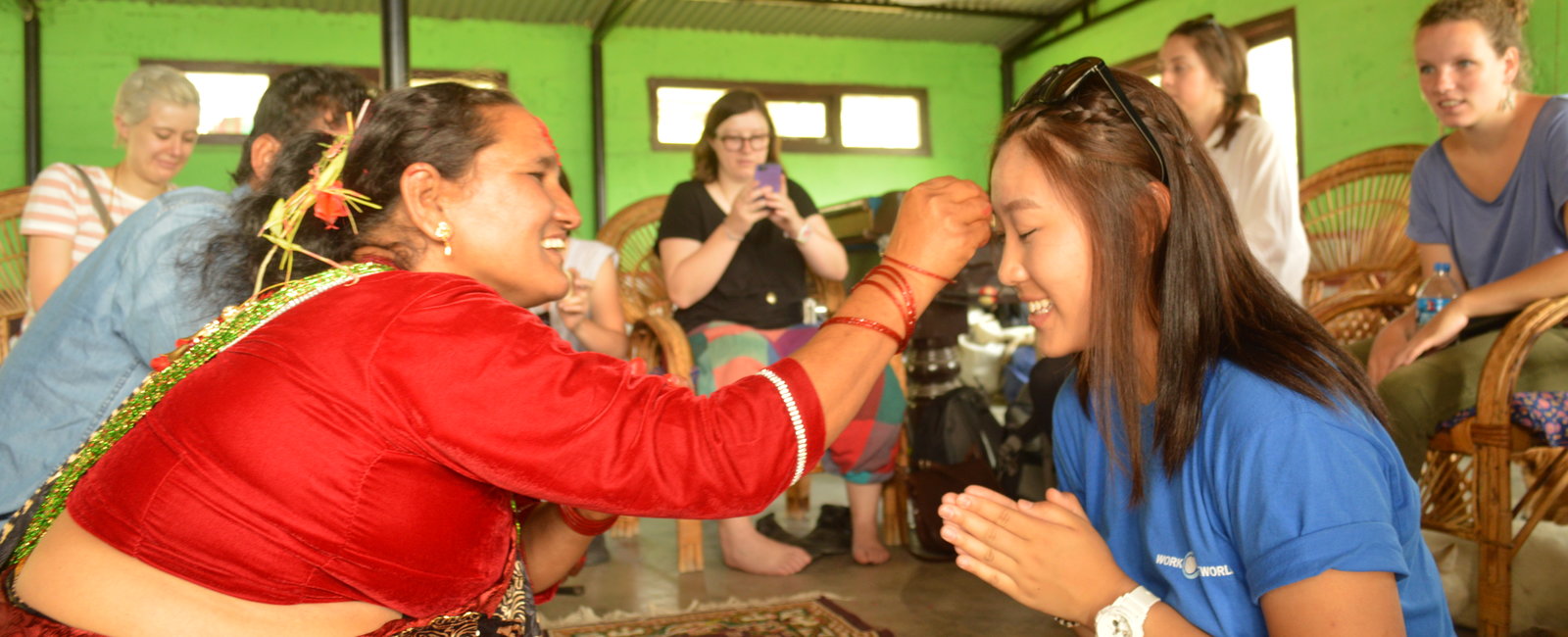University of East London 2017
Whilst learning about elective placements at university, we were told how we could potentially take our skills and experience new settings abroad in another country. After researching the offering online, I came across Work the World, and their programmes in Africa and Asia. As a keen traveller, nothing appealed more than doing a placement in a country that I have never visited and is very different from home. As I’ve never been to Africa before, I chose Dar Es Salaam in Tanzania, one of Work the World’s longest running programmes.

Work the World were really helpful and supportive. I spoke at length to the team about what to expect, how the placement was organised and also how to use the online personalised planner, MyTrip. It was really useful, as it lays out everything you need to do before you go, including setting deadlines for things like when to apply for my visa etc. As a busy university student with various deadlines, assignments and placements, it's reassuring to have the team supporting you with everything and I found this help invaluable.
The Work the World house was great, just a short walk from the beach and markets, with lots of space to socialise and hang out with fellow students. There’s even a pool to enjoy after placement. There was also 24-hour security which meant I always felt safe whilst I was staying there.

On placement in Tanzania, I worked with the team to choose time in orthopaedic outpatient physiotherapy and paediatrics. Work the World and the lead physio at the orthopaedic centre also afforded me regular visits to intensive care unit, the private wards, the operating theatres and cerebral palsy clinic. I also had the chance to visit both the neurological paediatric and orthopaedic paediatric wards.

The minibus, called a dala-dala, that we took to placement every day was very busy; it’s a great mode of public transport in Dar Es Salaam. The morning would consist of doing our inpatient services and visiting the wards, then the afternoon would be for outpatients. Aside from common knee and back pain, there was a lot of road traffic accidents, gun wounds and accidental injuries. The physiotherapists used ice and electrotherapy in their sessions, because a lot of patients didn’t have access to this at home.
Over on the paediatric wards, where in the UK, many things are diagnosed and treated quickly, there were no screenings and so diagnoses such as hydrocephalus and congenital disorders were more advanced than I had seen. Similarly, in the outpatient's clinic, there was a long waiting list meaning many conditions were already severe. This was very interesting as a physiotherapist but also challenging. Tuesdays and Thursdays were the allocated days for private patients, and there were so few that it would take us under 4 hours to see the private patients.
The difference in equipment at resources compared to at home was clear. TENS electrodes and towels were used multiple times, ITU uniform was somewhat makeshift, and gloves were used sparingly. It was reassuring that the staff were still able to do an amazing job despite of this.
A pleasant surprise was how few appointments were missed per month in the department; only around 5. Despite huge amounts of people waiting to be seen and patients having to travel very long distances, they still made the most of the healthcare available; never complaining and being very compliant with the staff and treatment.
I also had the opportunity to discuss with the locals about the international students from Work the World undertaking placements in the Tanzanian hospitals. They were very welcoming to us and felt that our presence helped shared knowledge and skills both ways, as well as sharing culture and language, too. One example is that many patients didn’t tend to continue their rehabilitation exercises at home so we were able to encourage them to do this and emphasise the boost this would have on their recovery.

Being able to interact with students of different disciplines and nationalities was really valuable. At home, I naturally spend a lot of time with other physiotherapy students, so my trip to Dar meant I could have more time with medics, nurses and dentists to name but a few. I was able to learn about their studies at home as well as what they were experiencing alongside me in Tanzania. At the house, we felt like family, and were able to share stories and experiences from the day. We were also able to travel parts of Tanzania together, and still remain friends now after we’ve all returned home.
There’s lots of great ways to spend your free time away from placement in Dar. Island-hopping and enjoying the beaches was a great way to relax, including Zanzibar, and we explored local markets too. We enjoyed watching local football at the national stadium, climbed Mt Kilimanjaro, and even did a safari in the Serengeti. Don’t forget your binoculars!

Whilst travelling, I was pleasantly surprised with how quickly I picked up Swahili and how well received it was by the locals. I can only thank Jacob, our language teacher at the Work the World house, for helping me with my accent and vocabulary. A great tip is to brush up on your Premier League Football knowledge, as the locals are big fans!
Since my return to the UK, I’ve gained a greater perspective and an appreciation for the structure and resources we have in our National Health Service. The best piece of advice I could give someone considering a placement with Work the World is to throw yourself in. It’s been one of the most fulfilling and enjoyable experiences of my life. I feel that I will be a better physio in the future because of these experiences.

%20Thumbnail%20Image.png)

.jpg)





